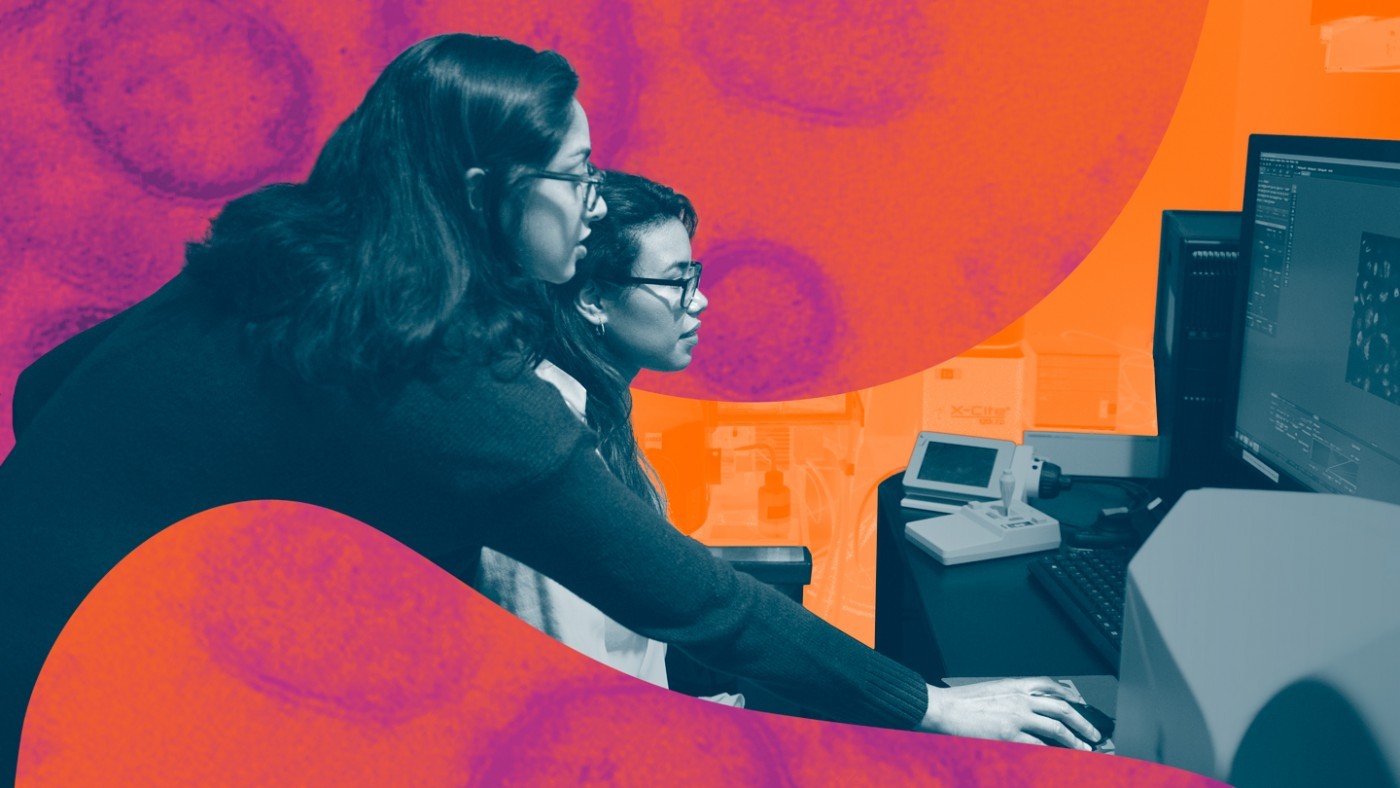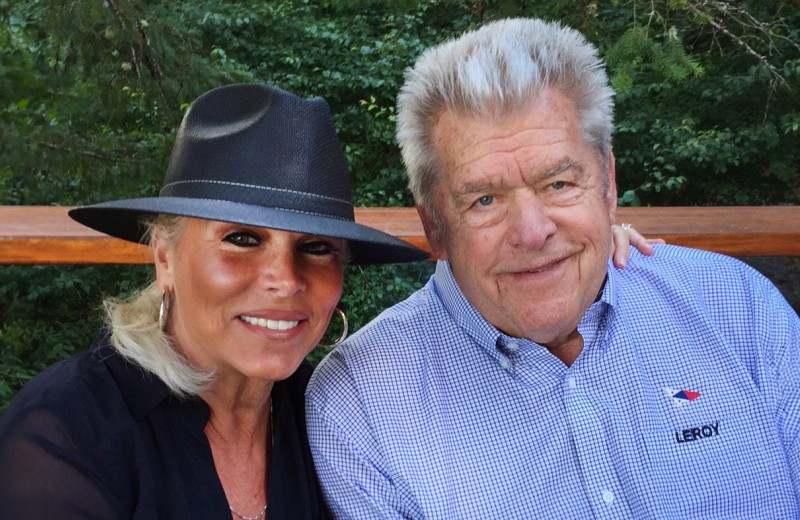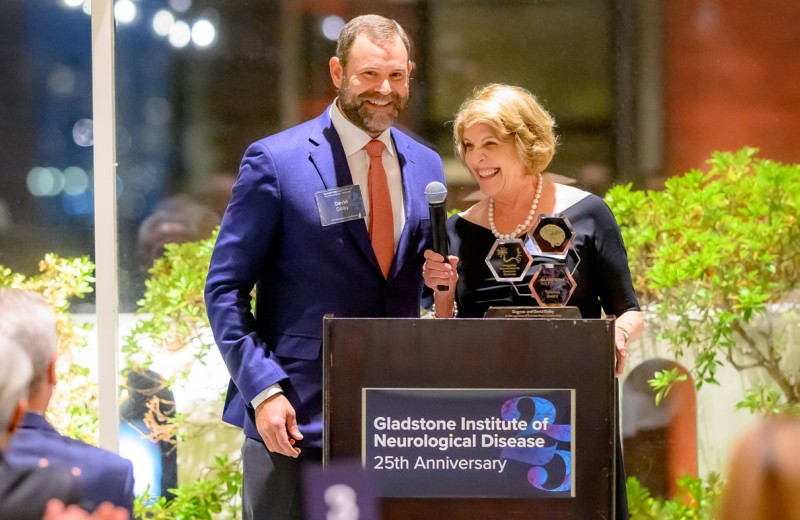Gladstone NOW: The Campaign Join Us on the Journey✕

Gladstone scientists have embodied the core value of risk-taking as they shift their focus to COVID-19.
As the COVID-19 outbreak began to unfold earlier this year, Gladstone scientists felt they had no choice but to address the emerging crisis.
Gladstone already had a strong history of working with viruses. The Gladstone Institute of Virology and Immunology was launched in 1991 as an urgent response to the HIV crisis. Its scientists were critical in helping turn HIV from a death sentence to a chronic illness. Over the last decade, they’ve turned their focus to Ebola and Zika as those outbreaks emerged.
But as Gladstone scientists moved to study SARS-CoV-2, the virus that causes COVID-19, the issue of funding arose. Much of biomedical research is funded by federal entities, such as the National Institutes of Health (NIH), and private funding organizations, both of which make narrowly focused investments in discrete projects. While these groups provide valuable support, securing this funding can be a long process and come with significant restrictions.
In order to receive federal funding, researchers have to write and apply for specific grants, outlining their projects in great detail so they can be reviewed and ranked by other scientists. The process of writing, submitting, and reviewing grants can take many months.
All these constraints can make it difficult for scientists to change course, address new problems as they arise, or take risks, all of which are necessary in a rapidly evolving pandemic situation.
Risk-taking is an important part of Gladstone’s culture and supported at the institutional level. A pretty unique feature in the science world, Gladstone labs are allocated every year a certain amount of discretionary funds to chase after their big ideas or search for answers to emerging public health crises, like COVID-19. However, this funding only goes so far.
“You pivot your work because of necessity and ability,” says Melanie Ott, MD, PhD, director of the Gladstone Institute of Virology. “You put every important dollar you have to good use, but it can only take you so far if you don’t have access to unrestricted funds. This is where philanthropy can make a huge difference in this disease.”
Ott says that the NIH and other governmental sources of funding are working hard to change their systems and allocate funds as quickly as possible. But applying for grants can still take months of work and delay. That’s where private philanthropy can make an impact. Private philanthropic funders can move much more quickly and make gifts that are much less restricted, exactly the sort of capital that is necessary at this time.
And at Gladstone, philanthropy is stepping in to support critical research.
In order to work directly with the live coronavirus, scientists need a highly secure and safe lab. Atlantic Philanthropies is providing funding to create a new biosafety level 3 lab dedicated to COVID-19 research at Gladstone and upgrading an existing one, which will create a hub of research not just for Gladstone scientists but for scientists throughout the Bay Area.
A number of donors are supporting the President’s Coronavirus Research Fund, a fund that catalyzes critical COVID-19 related experiments, allowing researchers to pivot their existing projects and seize promising research opportunities as they arise. For organizations like the Roddenberry Foundation, supporting COVID-19 research aligns perfectly with their own missions.
But it’s not just monetary support that’s being donated. Amazon is providing credits to Amazon Web Services to help with cloud computing, as the increase of data is becoming a limiting factor in all areas of science. They are also offering the time and expertise of machine learning and artificial intelligence professionals. Bain Consulting, an organization dedicated to solving industry-defining challenges, is donating pro-bono expertise to accelerate some of Gladstone’s most promising diagnostic projects.
“We could not be more grateful for the donors who have stepped in and offered their time and funding,” says Ott. “This will go a long way to not just stop COVID-19 but to prevent future pandemics.”
Support Our COVID-19 Research Efforts
Gladstone scientists are moving quickly to respond to the coronavirus outbreak. Help us end this pandemic.
Embracing Change: Darlene Hines Shares Her Journey of Growth, Resilience, and Giving Back
Embracing Change: Darlene Hines Shares Her Journey of Growth, Resilience, and Giving Back
Longtime Gladstone supporter Darlene Hines reflects on her journey of learning, growth, and giving after her husband’s passing
Donor StoriesVisionary Philanthropists Establish Center to Harness Computational Biology for Cancer Research
Visionary Philanthropists Establish Center to Harness Computational Biology for Cancer Research
A search for the brightest minds in cancer and AI led Hope and Sanjit Biswas to give in their own backyard.
Philanthropy Donor Stories Cancer Biswas Center for Transformative Computational Cancer Biology Data Science and Biotechnology Pollard Lab AI Big DataThe Risk and the Reward
The Risk and the Reward
How the Dolby family works to improve outcomes for people with Alzheimer’s disease
Donor Stories Alzheimer’s Disease



